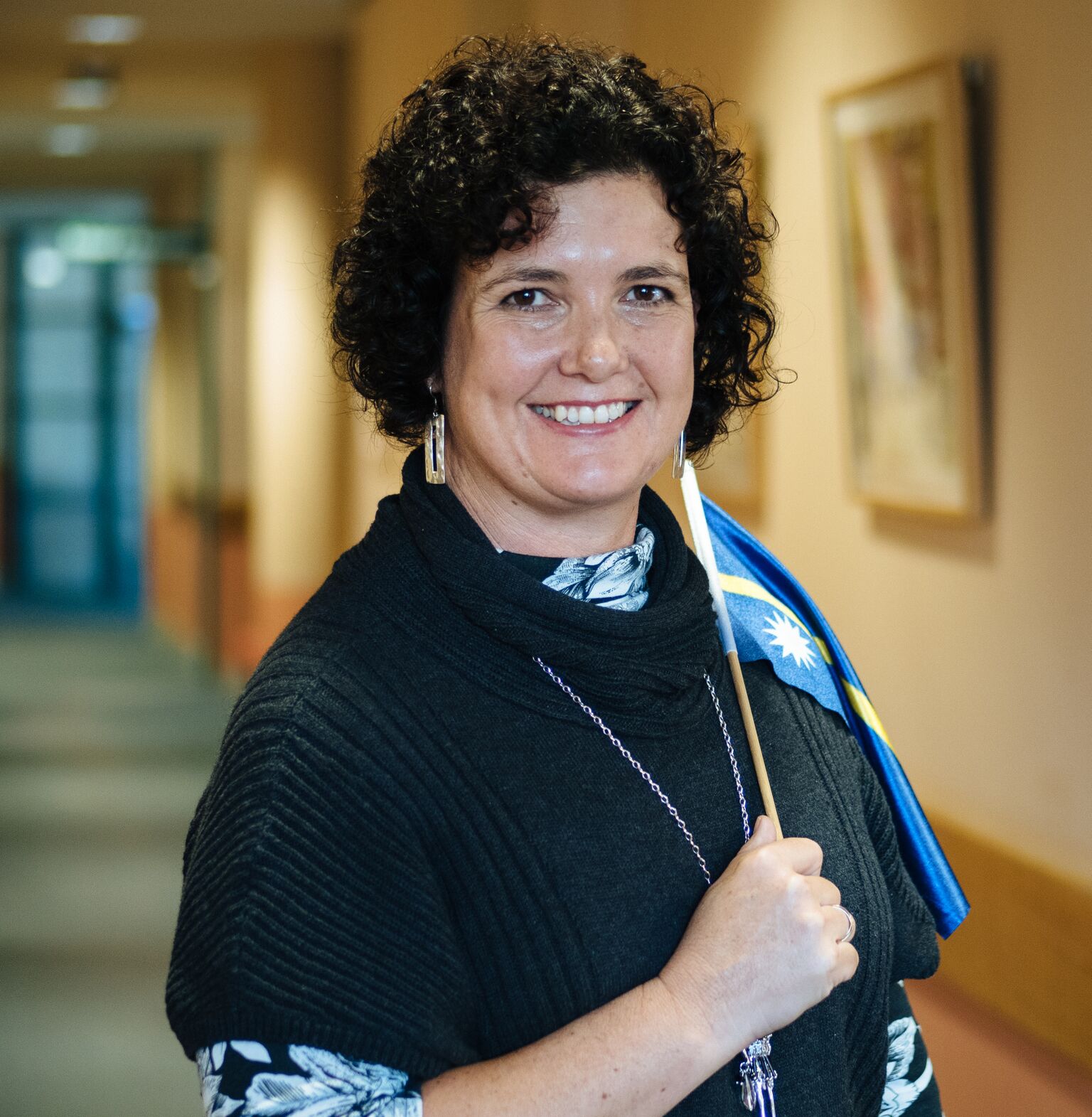The University of New England is helping to bring stability and growth to Nauru by equipping its first generation of internationally-qualified teachers with a teaching degree customised to the needs of the Pacific nation.
Up until recently, the nation’s 10 schools were almost entirely staffed by expatriate teachers. Since 2013, the UNE Nauru Teacher Education Project has supported 26 Nauruans to gain a degree-level qualification and a further 20 will start work as teachers over the next two years.
Led by Associate Professor Pep Serow and Professor Neil Taylor, the UNE team created two new internationally recognised qualifications – the two-year Associate Degree in Teaching (Pacific focus) and two-year Bachelor of Education (Pacific focus) – to provide pre- and in-service training for teachers from early childhood to secondary. With the support of the Nauruan Department of Education and funding from the Australian Department of Foreign Affairs and Trade, the team also developed and introduced a national mathematics curriculum.
Associate Professor Serow said the teacher training is tailored specifically to the needs of Nauruan teachers, and includes units unique to their schools, which commonly include multi-lingual students, asylum seekers and refugees.
“UNE is skilled at delivering education online but for it to be effective on Nauru we realised we needed an in-depth understanding of the trainee teachers, their motivations and the day-to-day environmental, cultural and community factors influencing their studies,” she said. “Teachers on Nauru work in a very challenging environment, but we’ve shown that qualified teachers and role models can come from within their own community.”
All but four weeks of the teacher training – for professional experience in Armidale schools – is delivered on Nauru. But Pep said working on the remote island has not been without its challenges. Initially, students had no physical campus, Internet and electricity connections were unreliable, and all learning materials had to be brought in.
“Many of our trainee teachers had received only basic secondary schooling or had been out of the school system for years; most are pioneers, as the first in their family to study at university,” Pep said. “We have got to know them personally and connected with their families, because their family and community play a vital role in supporting them to complete. Some women have had one, two and three children throughout their studies. It’s a relationship that has become so close that children from two families have been named after UNE team members!”
State-of-the-art IT equipment has been installed in a dedicated learning space in Nauru Secondary School and improved networking capabilities ensure the online delivery of all tutorials and group collaboration with UNE’s domestic students. Two full-time UNE lecturers are based on the island for 10 months of the year, and students have the support of two UNE-based support lecturers and an academic mentor.
“The UNE team hosts regular Nauruan Community Network events, where students share their learning with the community, and we’ve worked hard to build respect and responsibility on both sides,” Pep said. “The biggest advantage of our program is that it has facilitated equity and access to education for people who would have been unable to relocate to Australia – like one of our teachers, who has six children. By educating Nauruan teachers locally and increasing teacher quality, the project is contributing to the development of local role model teachers, who will inspire more school leavers to become teachers and the Nauruan community to become lifelong learners.”
Their commitment and dedication has earned the UNE team members in 2017 – Associate Professor Pep Serow, Professor Neil Taylor, Dr Terry Sullivan, Dianne Smardon, Jodana Tarrant, Dr Greg Burnett, Ellen Nyberg, Emily Angell and Madeline Fussell – a UNE Teaching Excellence Citation for Outstanding Contribution to Student Learning.
What started as a two-year project has blossomed into a six-year partnership with the people of Nauru that challenges the very nature of aid-funded international scholarships. Lessons learned by the UNE team are now being applied in another Pacific country – Tuvalu.


